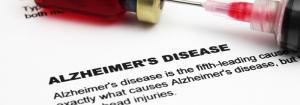
A study found that rapid weight loss increases the risk of Alzheimer’s disease, the cause of dementia.
As a result of analyzing the correlation between body mass index (BMI) and Alzheimer’s disease (AD), Professor Kim Young-sik of the Department of Family Medicine at Seoul Asan Hospital and Professor Seo-young Kang of the International Medical Center reported in Scientific Reports that this was the result.
Although many studies have been published that the risk of AD is high in obese people, there have been no studies on Koreans.
The subjects of this study were 45,000 people aged 60 to 79 who did not have Alzheimer’s disease among the participants of the National Health Insurance Service’s health checkup (2002-2003).
The research team reduced 5-10% (group A), 10.1-15% decreased (group B), 15% or more, depending on the BMI reduction rate between 2 years (2004-2005) and 4 years (2006-2007). Divided into (group C), the risk of AD development was compared.
As a result, in the case of women, the increase was 1.14 times in group A, 1.44 times in group B, and 1.51 times in group C during 2 years. In addition, over the past four years, it increased 1.31 times, 1.6 times, and 1.68 times, respectively. Weight loss and AD risk were found to be proportional.
In the case of men, there was no significant effect in 2 years, and AD risk was increased by 1.33 times in group B over 4 years.
Regarding the reason why the risk of developing AD increases when the BMI level is decreased, Professor Seo-young Kang explained, “When BMI decreases, nutrient deficiency and hormonal changes occur, which leads to cognitive decline, increasing the risk of Alzheimer’s disease.”
Professor Kang added that essential fatty acid deficiency causes physiological changes in nerve cell membranes, and vitamin deficiency slows the protective action against tissue damage.
Professor Kim Young-sik said, “This study suggests that weight loss in old age can lead to AD.” According to Professor Kim, the relevance in women is believed to be due to insufficient nutritional intake, such as protein, and lack of recommended exercise.
“Preventing weight loss due to lack of nutrition and sarcopenia due to lack of exercise in the elderly is important for brain health and prevention of dementia.”
Copyright © Medical Tribune Unauthorized reproduction and redistribution prohibited
